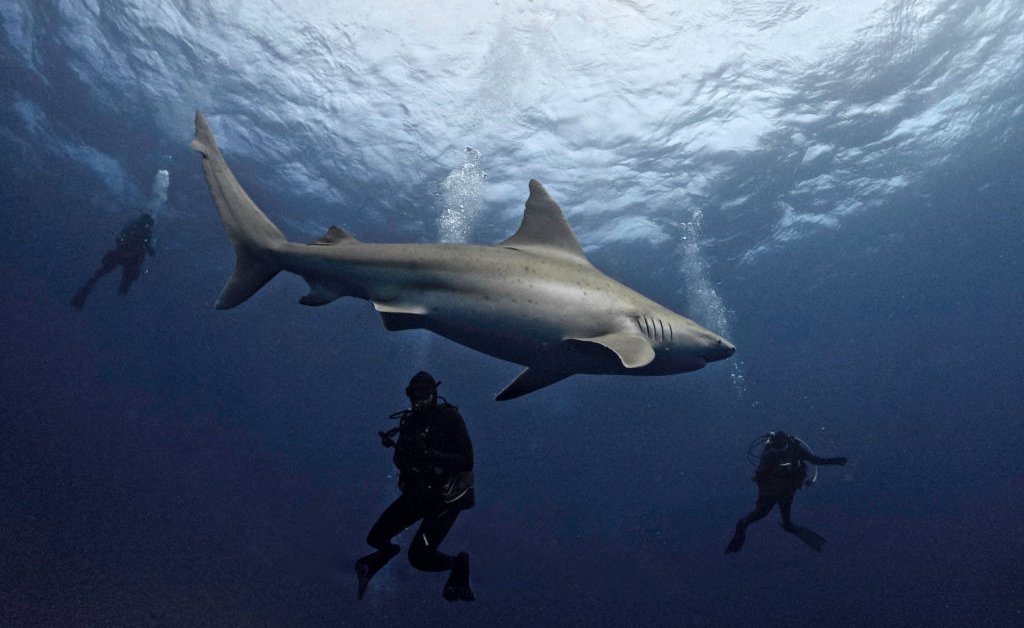From Jaws To Conservation: How A Film Changed Our Relationship With Sharks

Welcome to your ultimate source for breaking news, trending updates, and in-depth stories from around the world. Whether it's politics, technology, entertainment, sports, or lifestyle, we bring you real-time updates that keep you informed and ahead of the curve.
Our team works tirelessly to ensure you never miss a moment. From the latest developments in global events to the most talked-about topics on social media, our news platform is designed to deliver accurate and timely information, all in one place.
Stay in the know and join thousands of readers who trust us for reliable, up-to-date content. Explore our expertly curated articles and dive deeper into the stories that matter to you. Visit Best Website now and be part of the conversation. Don't miss out on the headlines that shape our world!
Table of Contents
From Jaws to Conservation: How a Film Changed Our Relationship with Sharks
The summer of 1975 saw the release of Steven Spielberg's Jaws, a cinematic masterpiece that irrevocably altered our perception of sharks. The film's iconic image of a great white shark, a relentless killing machine, instilled a primal fear in audiences worldwide. But decades later, the legacy of Jaws is far more complex than simple terror. It's a story of misinformation, a catalyst for conservation efforts, and a powerful reminder of the delicate balance between fear and understanding in our relationship with the ocean's apex predators.
The Jaws Effect: Fear and Misunderstanding
Jaws' impact was immediate and profound. The film’s depiction of sharks as mindless, man-eating monsters fueled a global wave of shark culling. Beaches were closed, shark hunts proliferated, and the population of many shark species plummeted. This fear, largely based on a fictionalized portrayal, overshadowed the vital ecological role sharks play in maintaining healthy ocean ecosystems.
The film's influence extended beyond immediate reactions. For years, the image of the great white shark as a terrifying predator dominated popular culture, hindering efforts to promote shark conservation and education. This negative perception fueled misconceptions about shark behavior and intelligence, leading to unnecessary fear and the continued persecution of these magnificent creatures.
A Turning Tide: From Fear to Fascination
However, the story doesn't end with widespread fear. The very success of Jaws ironically paved the way for increased awareness and a shift in public perception. The film's popularity sparked a greater interest in marine life, leading to increased funding for marine research and conservation initiatives. Documentaries like the BBC's Blue Planet II and National Geographic's various shark specials have countered the negative portrayal of Jaws, showcasing the elegance, intelligence, and crucial ecological importance of sharks.
The Importance of Shark Conservation
Sharks are keystone species, meaning their presence is vital to the health of the entire ocean ecosystem. They regulate prey populations, maintaining biodiversity and preventing imbalances within the food chain. Their decline poses a serious threat to the health of our oceans and the sustainability of marine resources. .
Moving Beyond Jaws: A Call for Responsible Interaction
Today, conservation efforts are focusing on education, research, and sustainable practices to protect shark populations. These efforts include:
- Stricter regulations on fishing practices: Reducing bycatch (unintentional capture of non-target species) is crucial.
- Marine protected areas: Establishing sanctuaries where sharks are safe from fishing and other human activities.
- Combating the illegal shark fin trade: This devastating practice drives many shark species towards extinction.
- Promoting responsible ecotourism: Offering opportunities to observe sharks in their natural habitat without harming them.
While Jaws undeniably fueled a period of fear and misunderstanding, its legacy has also spurred a growing movement toward shark conservation and a deeper appreciation for these magnificent creatures. By understanding the impact of the film and actively promoting responsible interactions with sharks, we can move towards a future where fear gives way to respect, and where the ocean's apex predators are not just surviving, but thriving.
What are your thoughts on the lasting legacy of Jaws? Share your opinions in the comments below!

Thank you for visiting our website, your trusted source for the latest updates and in-depth coverage on From Jaws To Conservation: How A Film Changed Our Relationship With Sharks. We're committed to keeping you informed with timely and accurate information to meet your curiosity and needs.
If you have any questions, suggestions, or feedback, we'd love to hear from you. Your insights are valuable to us and help us improve to serve you better. Feel free to reach out through our contact page.
Don't forget to bookmark our website and check back regularly for the latest headlines and trending topics. See you next time, and thank you for being part of our growing community!
Featured Posts
-
 Post Match Row Erupts In Womens Tennis Accusations Fly After Match
Jun 23, 2025
Post Match Row Erupts In Womens Tennis Accusations Fly After Match
Jun 23, 2025 -
 After Failing To Score Caitlin Clarks Former Teammate Released By Wnba Team
Jun 23, 2025
After Failing To Score Caitlin Clarks Former Teammate Released By Wnba Team
Jun 23, 2025 -
 Brewers Edge Twins In Thrilling 9 8 Victory Complete Rare Sweep
Jun 23, 2025
Brewers Edge Twins In Thrilling 9 8 Victory Complete Rare Sweep
Jun 23, 2025 -
 Nascar Pocono Early Race Troubles For Ryan Blaney And 6 Fellow Competitors
Jun 23, 2025
Nascar Pocono Early Race Troubles For Ryan Blaney And 6 Fellow Competitors
Jun 23, 2025 -
 Us Distraction Enables Hong Kongs Intensified Democratic Suppression
Jun 23, 2025
Us Distraction Enables Hong Kongs Intensified Democratic Suppression
Jun 23, 2025
